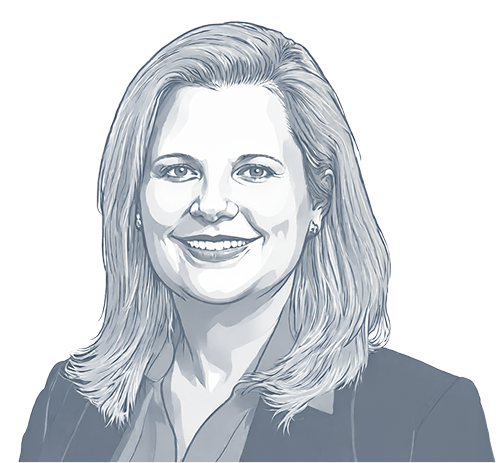
When a new startup launches, there’s an impulse to reject corporate structure.
It’s only as startups grow that they realize traditional companies have certain methods in place for a reason—some of them actually work.
On the other end of the spectrum are said traditional companies, which can struggle to devise happy, fast-paced workplaces in their own right. Sure, they have some practices in place that startups would be wise to adopt, but they are also out of touch and inflexible, making it difficult for them to scale culture and processes in a way that’s conducive to morale and output.
Then There’s Argyle
We’re a startup, yes, but we don’t subscribe to the outright rejection of management techniques that have been in place for decades; we carefully reflect on them to determine which are necessary for the future of work, which are not, and which can be reimagined. We also seek inspiration from human performance thought leaders, like Doug Engelbart, and pioneering companies, like GitLab. It’s a fine balance between taking the best of what others have to offer and applying them efficiently.
The result is a distinctively Argyle culture that’s helping to redefine the future of the workplace and even what it means to be a company.
Two Words: Remote & Asynchronous Work
Since our founding—well before the coronavirus pandemic—Argyle has operated fully remotely. We have no physical offices. Instead, we have a work-from-home force spread across five continents and 19 countries and counting, including a CEO in New York, a CTO in Vilnius, and a COO in San Francisco.
We know what you’re thinking: more companies than ever are operating remotely . And even before the pandemic, a not-insignificant number of startups offered some remote opportunities. The difference is we’re fully remote, and we offer asynchronous work environments.
Asynchronous Defined
At Argyle, we allow our employees to decide what hours they will be online. That means we don’t have set work hours or a standard time zone dictating when we should all be logged in. Everyone at Argyle works according to the schedule that makes sense for them wherever they happen to be in the world—no tracking hours, no micromanagement. Individuals are able to work when they’ll be most productive in an environment where they are trusted to get tasks done without looming managers. The effects on efficiency and morale are staggering.
A Microservices Metaphor
In a way, Argyle team members are the human performance equivalent of microservices. Like microservices, we trust them to perform a specific role and produce meaningful output, and they are free to accomplish that as they please. But they are also dependent internally and must communicate with one another according to specific standards of communication.
In contrast, a traditional startup functions like a monolith. Early on, employees sit in the same room, get to know each other, and function as a unit. And that goes well, until they outgrow their office and need to lease a second floor. Then, there’s a divergence. Cultural microcosms form, and there are breakdowns and inconsistencies in how people communicate. Startups end up having to build ad hoc protocols in hopes that they can get cultural norms to carry over, which they rarely do in an optimal way. It’s inefficient.
The Argyle Difference
As a fully remote, asynchronous company, we defined those communication and culture protocols at the start. That means everyone comes into Argyle on the same page. No one is more a part of the team because of their proximity to headquarters because there is no headquarters. On the flip side, no one feels alienated or “off-shore,” because we are all in the same remote boat, or really, on equally remote islands.
Making It Work
Staying connected is key to making our model work, and the most important aspect of future of work. Here are the protocols that help us sync:
- We record everything. Finding a meeting time that works for everyone isn’t practical when you have team members in New Zealand, Argentina, San Francisco, and Lithuania (just to name a few), so we typically don’t try. Instead, when we do have video conferences between a couple or a few people, we record them and post them in the proper Slack channel, so others can contribute to the conversation despite not having been there live, an ideal example of an asynchronous workplace. That spares our employees from having to participate in endless Zoom calls, but it doesn’t keep them in the dark.
- We crowdsource feedback. Requests for comments (also known as RFCs in Argyle parlance) are as ubiquitous to our workplace as emails are to traditional companies. RFCs are a way for our team members to solicit ideas from their colleagues on a certain topic. It works like this: If someone has an idea on how to improve a business or software process, they draft their idea in Notion and send it out to the team for feedback, which are left as comments in the document. Over the course of a week (or however long the idea is up for discussion), there’s vibrant back and forth, and everyone feels good about having had their say.
- We employ fewer, more effective communications tools. Speaking of Notion, it’s our primary source of truth and collaboration. A lot of the company is managed through and out of Notion. (We even raised our Series A funding using a Notion document instead of a traditional deck.) That’s key, because when you are reliant on fewer communications mechanisms, fewer things slip through the cracks.
- We practice top-down, bottom-up, and side-to-side transparency. When you aren’t sitting in the same room as your colleagues, you need to enact purposeful mechanisms to build trust. In practice, that means our leadership makes a point of not just enacting decisions but explaining the why behind those decisions and seeking input and reactions from the rest of the team. It means that everyone at Argyle is encouraged to be open with their colleagues when a task or project isn’t going well, so others can jump in and help. And it looks like our Kanban board and our fractal countdown board, which transparently displays all the details of every Argyle project and allows everyone in the company to zoom in and out of projects to monitor progress. This ensures that our CEO, designers, and developers are all looking at the same ground truth, held in a single database.
- We systematically monitor team sentiment. Being in the same office as your colleagues means you typically have a sense of how they feel about their work and how stressed they are by their responsibilities. When you are working remotely and asynchronously, that has to be compensated for. That's why we use tools that allow us to asynchronously gather employee feedback and data on their well-being. We then respond accordingly with appropriate actions when our metrics indicate there may be issues.
- We make watercooler time. We make opportunities for our team to get to know each other whenever we can, and to support social interaction. That includes facilitating random chatter using Donut, a Slack app that serendipitously connects coworkers for virtual meetups. There are also plenty of remote team-building games and exercises, and when a pandemic isn’t raging, we will get everyone together every half a year or so for an in-person offsite—just to make sure that our slack avatars still match our faces IRL. ;)
Silicon Valley Goes Global
So, why go to all the trouble to do things differently? Because there are tremendous benefits of an asynchronous workplace to our company and our team:
- We have access to exceptional global talent without the prohibitive price tag of setting up offices around the world.
- Our employees don’t have to move to an expensive tech hub, and they don’t have to sacrifice dinner with loved ones or picking their kids up from school, just to meet the demands of their job. They can work anywhere they choose, whenever they choose.
- When you give employees freedom, flexibility, and independence, they appreciate it, and it shows in the quality of their work.
- It’s conducive to radical productivity and growth. Our asynchronous approach means someone, somewhere at Argyle is literally always logged in writing code. When one side of the world finishes their work, the other side picks it up seamlessly.
Want to know more about Argyle’s workplace culture and philosophies around human performance? Check out our CTO Audrius’s interview on the Baltic Startup Mafia podcast.
Interested in working at Argyle? Check out our current job opportunities to see if you’re a fit, or reach out to us at recruiting@argyle.com.

